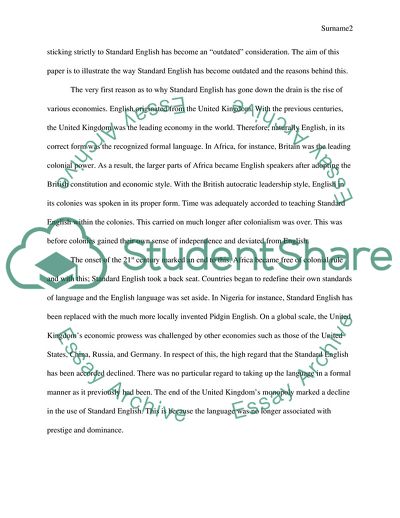Cite this document
(The Monolithic Term Standard English Is an Outdated Concept Essay, n.d.)
The Monolithic Term Standard English Is an Outdated Concept Essay. Retrieved from https://studentshare.org/english/1857353-the-monolithic-term-standard-english-is-an-outdated-concept-in-the-21st-century
The Monolithic Term Standard English Is an Outdated Concept Essay. Retrieved from https://studentshare.org/english/1857353-the-monolithic-term-standard-english-is-an-outdated-concept-in-the-21st-century
(The Monolithic Term Standard English Is an Outdated Concept Essay)
The Monolithic Term Standard English Is an Outdated Concept Essay. https://studentshare.org/english/1857353-the-monolithic-term-standard-english-is-an-outdated-concept-in-the-21st-century.
The Monolithic Term Standard English Is an Outdated Concept Essay. https://studentshare.org/english/1857353-the-monolithic-term-standard-english-is-an-outdated-concept-in-the-21st-century.
“The Monolithic Term Standard English Is an Outdated Concept Essay”. https://studentshare.org/english/1857353-the-monolithic-term-standard-english-is-an-outdated-concept-in-the-21st-century.


